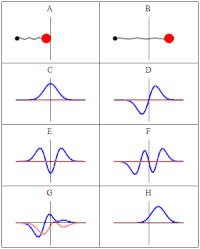
Photo from wikipedia
Normalisation of data, by choosing the appropriate reference genes, is fundamental for obtaining reliable results in quantitative real-time PCR (qPCR). This study evaluated the expression stability of 11 candidate reference… Click to show full abstract
Normalisation of data, by choosing the appropriate reference genes, is fundamental for obtaining reliable results in quantitative real-time PCR (qPCR). This study evaluated the expression stability of 11 candidate reference genes with different varieties, developmental periods, tissues, and abiotic stresses by using four statistical algorithms: geNorm, NormFinder, BestKeeper, and RefFinder. The results indicated that ubiquitin-conjugating enzyme S (UBC) and ubiquitin-conjugating enzyme E2 (UBC E2) could be used as reference genes for different E. ulmoides varieties and tissues, UBC and histone H4 (HIS4) for different developmental periods, beta-tubulin (TUB) and UBC for cold treatment, ubiquitin extension protein (UBA80) and HIS4 for drought treatment, and ubiquitin-60S ribosomal protein L40 (UBA52) and UBC E2 for salinity treatment. UBC and UBC E2 for the group “Natural growth” and “Total”, UBA80 and UBC for the group “Abiotic stresses”. To validate the suitability of the selected reference genes in this study, mevalonate kinase (MK), phenylalanine ammonia-lyase (PAL), and 4-coumarate-CoA ligase (4CL) gene expression patterns were analysed. When the most unstable reference genes were used for normalisation, the expression patterns had significant biases compared with the optimum reference gene combinations. These results will be beneficial for more accurate quantification of gene expression levels in E. ulmoides.
Journal Title: Scientific Reports
Year Published: 2018
Link to full text (if available)
Share on Social Media: Sign Up to like & get
recommendations!